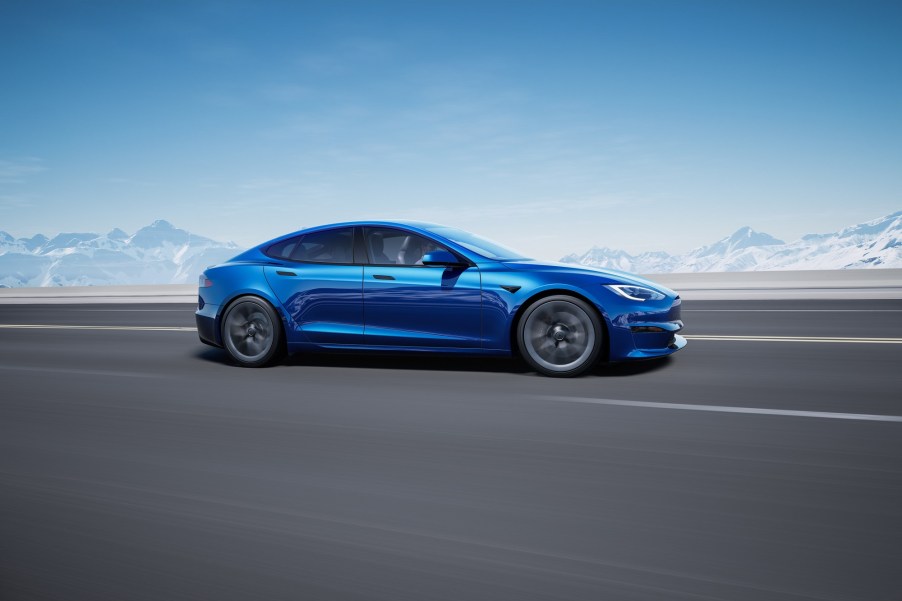
NHTSA Recalls All Tesla Models with Full Self-Driving Beta
As automotive technology continues to advance, one controversial topic involves the viability of self-driving cars on open roads. While Tesla’s Full Self-Driving system has pushed those boundaries the furthest, many have decried the system as unsafe for such open road use. Now, NHTSA seems to agree. The agency has issued an immediate recall for all Tesla models with the FSD Beta installed.

Why NHTSA has recalled Teslas with Full Self-Driving feature
According to reports from NHTSA, the federal agency is recalling all Tesla models with Full Self-Driving beta for safety reasons. Specifically, they state that FSD may “allow vehicles to act unsafe” at intersections. The agency has found that Tesla’s full self-driving software works in several unsafe ways, such as, “traveling straight through an intersection while in a turn-only lane, entering a stop sign-controlled intersection without coming to a complete stop, or proceeding into an intersection during a steady yellow traffic signal without due caution.”
Other noted problems within the Tesla recall involve insufficient response to changes in posted speed limits.
Notably, these are issues that have been highlighted in many videos posted to social media over the years.
Over this period, automotive enthusiasts and activists have both called for the technology to face more regulatory scrutiny. As FSD has been blamed for numerous accidents and fatalities over the years, those calls have only gotten stronger.
An investigation into Full Self-Driving has been ongoing
Since 2021, both NHTSA and the U.S. Justice Department have been investigating Tesla on a variety of fronts. Chief among these is their rollout of Full Self-Driving software and associated problems.
Regulatory scrutiny has been intensifying in recent months, with requests for documents and internal communications coming as recently as two weeks ago.
Overall, the brand, led by CEO Elon Musk, has admitted that nobody is in charge of ensuring the safety and reliability of FSD tech. For his part, Musk stated on a recent Tesla conference that “full self-driving is obviously getting better very rapidly.”
Even more damning are statements from a Tesla engineer that a 2016 video showing off the technology was staged. The engineer also mentioned that the video showed off capabilities that the tech did not yet have, such as stopping and starting at traffic lights.
Tesla, for their part, has warned that drivers should keep their hands on the wheel and be attentive while driving. However, no eye-tracking technology has been implemented, unlike similar technologies from Ford, Cadillac, and others. This Tesla recall won’t address those concerns. However, it will update the tech to improve basic traffic functions.

NHTSA’s involvement in the Tesla recall
Beginning in August 2021, NHTSA upgraded their investigation to an “engineering analysis”, looking at all 830,000 vehicles with Tesla FSD Beta installed. This was considered a necessary step before a recall could be issued, but considerable time has passed since that investigation began.
That said, it appears the agency has finally found enough evidence to demand a recall of all Tesla Model 3, Model S, Model X, and Model Y vehicles with FSD beta. In January, the agency told Tesla that it had identified concerns relating to Full Self-Driving in certain roadway environments.
Tesla disputed the issue, but ultimately issued a voluntary recall out of an “abundance of caution.”
How will the Tesla FSD recall be administered?
An over-the-air software update will be pushed to nearly 363,000 models to help remedy these issues. Notifications will begin distribution on April 15th. So far, this is the only recall resulting from these investigations. However, both the Justice Department and NHTSA plan to continue investigating Tesla for both business practices and safety concerns.




